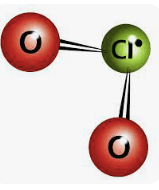Optimal nutrition creates optimal health. Food contains macronutrients and micronutrients that either contribute to health or help to destroy it over time. Nutrient dense food has the optimal amount of macro and micro nutrients. Guess what doesn't?
Before I go on about kibble, it's important to understand some nutrition basics to help understand why kibble is so harmful for health. Optimal nutrition creates optimal health. Back to the macros and micros:
Macronutrients are carbs, proteins and fats are the major nutrients that the body needs to function properly. Carbs have 4kcal per gram. All carbs are eventually broken down into glucose, or sugar, which the brain needs to function properly. It's also important to note that the body can make glucose if it needs to from protein by a process called gluconeogensis. Fiber is a type of carb that can't be broken down by the digestive system and is extremely important to help the body detox and keep the gut microbiome healthy. There are also two types of carbs: simple and complex.
Simple carbs are easy for the body to break down and have 1-2 sugar molecules, like fruit. Fruit also contains fiber and important micronutrients and phytonutrients that help keep the body healthy. Complex carbs take more time for the body to digest because they have bigger and longer sugar molecules. Examples include rice, pasta, bread, potatoes, beans, peas and corn. Complex carbs also have fiber unless they have been highly processed.
Proteins have 4kcal per gram. This may be the most important macronutrient because it allows the body to grow, repair muscles and tissue and protect muscle mass. Proteins are made of 2 kinds of amino acids, non-essential and essential. The body can actually make non-essential amino acids through normal biochemical processes. Essential amino acids are those that are found in food, like meat. Meat actually contains all essential amino acids needed for optimal health.
Fats contain 9kcal per gram, which is more than double that of carbs and proteins. Fats are satiating and allows the storage of energy, protects organs, absorbs vitamins and helps protect cell membranes. There are 3 types of fats: trans fat, saturated fat and unsaturated fat. Trans fat should be avoided at all costs period. Trans fat are formed in food when cooked in hydrogenated oils, like vegetable oil like canola oil or sunflower oil. Saturated fat is found in full-fat animal products fatty meat, lard and butter and can increase cholesterol, which may not be a bad thing. Unsaturated fats are healthy fats like avocado, seeds and nuts, which can potentially decrease heart disease risk factors.
Micronutrients are vitamins and minerals that help the body to function optimally. There are water-soluble vitamins that dissolve in water and difficult to store in the body, like B vitamins. Fat-soluble vitamins don't dissolve in water and are absorbed best when consumed with a fat. Examples of fat-soluble vitamins include vitamin A, D, E and K.
The problem with kibble is that the macronutrient and micronutrient ratio is just wrong when it comes to optimal health. Take a look at the macronutrients in an ancestral diet, what a dog would eat in the wild, compared to the macronutrients found in kibble, which is what most domesticated dogs eat:
| Nutrient | Ancestral Diet | Dry Dog Food |
| Protein | 56% | 18 - 32% |
| Fat | 25 - 30% | 8 - 22% |
| Carbohydrates | 14% | 46 - 74% |
Most kibble contains too many and the wrong type of carbs. Dogs have evolved from wolves and can metabolize some more carbs compared to their ancestors, but those carbs should absolutely not be from wheat, oats, rice sugar beets, which are the primary ingredients in most kibble. Unfortunately, we live in a world where money is valued more than health and essentially all grains (wheat, oats and rice) are sprayed in glyphosate, which is an herbicide used to kill weeds and grasses despite compelling evidence that links glyphosate consumption with disease. You can read more about glyphosate here.
Additionally, most kibbles also do not contain enough quality protein to help keep your dog healthy. The primary protein source in most kibble is literally by-product meal, which are the remnants of whatever carcass of animals used for human food. Since your dog has to consume essential proteins aka amino acids from meat to maintain optimal health, quality protein is critical. White fish such as tilapia or cod, venison, beef, bison and chicken are excellent protein sources, which are typically not found in the correct proportions in kibble.
Lastly, the fat source found in many types of kibble is often chicken fat or pork fat, which again are often the leftovers that can't be used for human food. While this isn't the worst thing in the world, much better options exist, as long as you know what to look for. Fish oil, salmon oil, coconut oil and eggs are great and relatively affordable options.
As for micronutrients, most kibble brands have to add them back in to their products because all of the quality vitamins and minerals have literally been stripped from the ingredients. Fresh food is always better than anything with a long shelf life, like kibble.
Food provides energy. Just like humans, when a dog eats more food than they actually need and particularly the wrong type of food, their bodies will begin to store that excess food as fat, which leads to obesity, diabetes and cardiovascular disease. Despite these disease becoming normalized, they absolutely are not and you and your dog deserve so much better. Optimal nutrition creates optimal health.
If you are looking to change your dogs' diet, please click here for our raw food brand recommendation, here for our home cooking recipe and here for our supplement recommendations. We have no affiliation with the brands we recommend. We did our research and would only recommend the highest quality and cleanest products that we would or have given to our own dogs. If your dog is chronically ill and would like some guidance on how to get started, please visit Bobzilla's Happy, Healthy Life Made Simple here.




